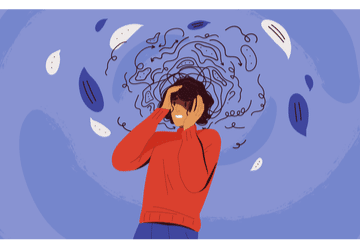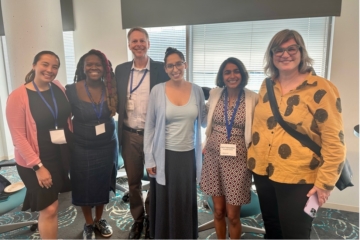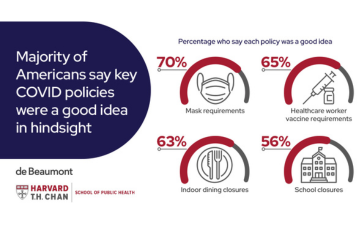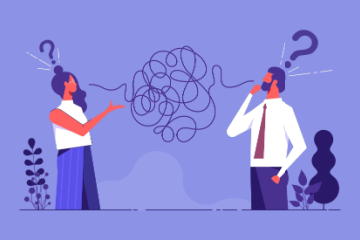Republished from Substack with the author’s permission. See original, published July 1, 2021.

Scientists surveyed 26,174 public health workers who worked in a health department at anytime during 2020. Information was gathered on four mental illness conditions: anxiety, depression, PTSD, and suicidal ideation.
What did they find?
- 53% of public health workers reported at least one mental illness in the past 2 weeks
- 32% reported depression
- 30% reported anxiety
- 37% reported PTSD (symptoms were highest among those with graduate level degrees)
- 8% reported suicidal thoughts
- 59.2% worked ≥41 hours in a typical week since March 2020. And, the more hours they worked on COVID19 things, the higher the rate of mental illness
- 33% were unable to take time off of work and were twice as likely to report a mental illness. The most common reasons for not taking off time was:
- Concern about falling behind on work (64.4%)
- No work coverage (60.6%)
- Feeling guilty (59.0%)
- 18.2% reported that their employer did not allow time off from work
How does this compare to other frontline jobs?
I compared these numbers to other populations during the pandemic. Public health workers had higher rates of all mental illnesses compared to the general population (here), healthcare workers (here; here), and emergency personnel (here).
And guess what…the pandemic is not over. So these public health heroes are STILL working their butts off. That is, if they haven’t quit.
I asked a very few close friends to explain their experience as public health workers during the pandemic.
This is what they said:
- “Just thinking about what to say brings up so many emotions. I don’t even know if I can eloquently say what I feel. Nothing fully captures what this year has been like.”
- “Damaging. Never being able to get away from it. The constant, never relenting presence of COVID in our lives 24/7. It consumes our work, our homes, wherever we are, it is. Never really being in the moment with any part of your life because you know your phone is going to ring with a work request at any moment. Foolishly thinking you can take an hour out to celebrate your kid’s birthday only to have some request from a politician who demands an immediate response.”
- “The long never ending work weeks with no one advocating for our mental/physical health. Just constantly asking us to do more and more and more. And when we do speak up, we are treated like we are weak.”
- “Seeing the absolute shameful worst in people. And the absolute inspiring best in people, who were the reason I keep doing this every day. No regret.”
- “It has challenged me physically, mentally, and socially. I believe in the work we do and the people we help but there are too few of us. We are doing 2-3 jobs per person averaging as much as 120 hours per week. So we push through because people continue to get sick and die. But we suffer too.”
How can we fix this?
We can do a lot of things in the short- and long-term.
In the short term, we can actually listen to public health departments when they provide recommendations. We can stop sending them death threats and harassments. We can say thank you. Leaders (both politicians and public health) also need to acknowledge the mental health of their workforce and advocate for them.
In the long term, we can actually invest in a public health infrastructure. Public health has been chronically underfunded in the United States, which become blaringly obvious once the pandemic hit. Departments didn’t have the workforce or the budget for an effective response. Some departments were on their own too, like Texas which has a completely decentralized public health system. Another way to fix this all? Politics need to be removed from public health. Period.
Bottom Line
Go hug a public health worker. Well, maybe not. But please do recognize how much they sacrificed and continue to sacrifice for us. We owe them, quite literally, our lives.
Katelyn Jetelina, author of “Your Local Epidemiologist” on Substack, is an assistant professor at a school of public health. She has a Masters in Public Health and a PhD in epidemiology and biostatistics.





